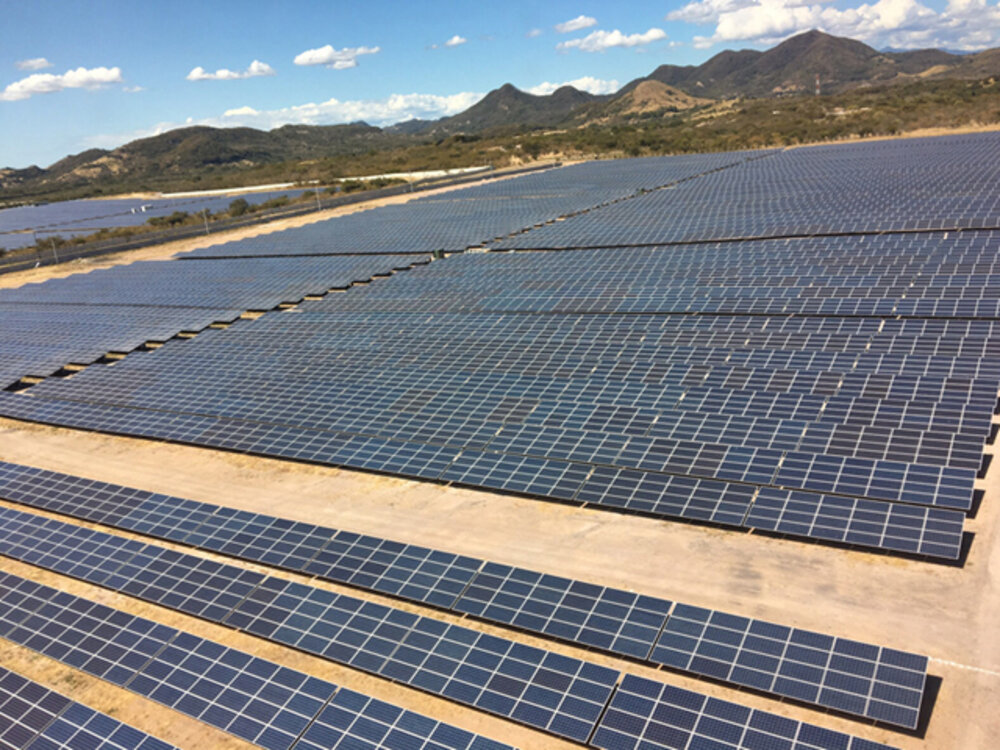CABEI supports financing for projects to face climate change

Ideas for Regional Projects in Energy Efficiency, Electrical Mobility and Water Management have been identified in a Regional Workshop held in Panama.
Panamá, October 20, 2017 (AFP SERVICES/CABEI).- The Central American Bank for Economic Integration (CABEI) is fully committed to supporting its member countries to deal with the effects of climate change by incorporating a cross-cutting axis of environmental sustainability into its Institutional Strategy and achieving its accreditation with the Green Climate Fund.
Central America and the Caribbean are located in one of the regions most vulnerable to the effects of climate change. According to the Climate Risk Index published in 2017 by German Watch, Honduras ranked as the most vulnerable country in the world between the 1995-2016 period, and other countries in the region, such as Nicaragua (4) and Guatemala (9) are within the top ten most affected countries.
CABEI Country Manager for El Salvador, Mr. Raúl Castaneda, stated that, “The Bank has been a pioneer in financing projects that contribute to mitigating and adapting its member countries to the effects of climate change.”
Castaneda added that, "Since its founding, the Bank has financed renewable energy generation projects of more than 5,920 megawatts; of that amount, 2,000 megawatts have been installed during the last five years, which is equivalent to 38% of total installed capacity in the Central American region. Likewise in the 2010-2014 period, 67% of the Bank's approvals included climate change mitigation and adaptation activities, contributing to a reduction of more than 25 million tons of greenhouse gas emissions and a markdown of over US$2 billion in hydrocarbon imports."
Commitment to a green future
CABEI Head of the Department of Strategic Alliances and International Cooperation, Mr. Miguel Ángel Méndez commented that, “In order to continue to be relevant to the countries regarding the provision of financial solutions through the express instruction of its Board of Governors and Board of Directors, the Bank actively participates in initiatives for the channeling of financial resources that promote the sustainable management of natural resources in the region. In this regard, the Bank has achieved a position of observer at the United Nations Framework Convention on Climate Change (UNFCCC), has been accredited as a regional implementing entity of the Adaptation Fund and, more recently, on December 14, 2016, achieved accreditation as a regional direct access entity to the Green Climate Fund, which enables it to channel financial resources to its member countries for climate change mitigation and adaptation programs and projects, contributing to countries in their efforts to comply with the commitments made at the XXI Conference of the Parties (COP) held in Paris in December 2015.”
From October 18 to 19, CABEI and UN Environment held a workshop in Panama with officials from the Ministries of Environment, Energy, Transportation, Communications and Finance of the Bank's member countries in order to identify potential projects to help face the risks of climate change to be presented to the Green Climate Fund.
Mr. Mendez added that, “Participants had the opportunity to learn more about different technologies that can be applied to address the effects of climate change in the region, as well as the different financial mechanisms that the Green Climate
Fund makes available to countries through accredited entities such as CABEI and UN Environment.”
Mendez concluded that, “As a result of the workshop, potential regional and national projects have been identified in the areas of energy efficiency, electric mobility and water resource management. Based on these results, CABEI and UN Environment will continue to support countries in designing financing proposals to be submitted for approval of the Green Climate Fund.”
Mr. Castaneda added that, "CABEI’s member countries face many challenges; however, the Bank is commitment to be a strategic partner in supporting its member countries to face challenges related to environmental sustainability and the effects of climate change. There is a marked trend towards awareness-raising to promote environmental conservation with the aim of leaving a legacy for the next generations; it is a path that we are bound to follow."






